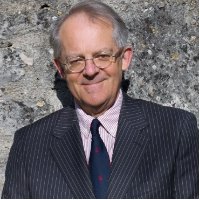In May 2014, European citizens will be asked to vote in the European Parliamentary elections. Many fear that this election will see the re-emergence of euro-scepticism and nationalism. In a reference to the rising tide of nationalism in the Eurozone, Jean Claude Junker, former prime minister of Luxembourg, had this to say: “I am chilled by the realisation of how similar circumstances in Europe in 2013 are to those of 100 years ago”. Is Europe experiencing a return to a nationalist mindset? Can the situation in 1914 be compared to that of today? Understanding the role that nationalism has played in forging Europe since the First World War can provide valuable lessons to help us to apprehend how it could impact the future of the community.Somne further questions that might be considered in this workshop are:
- Can nationalism become a threat to the European project?
- Are Euroscepticism and Nationalism distinct, or two faces of the same coin?
- What are the links between European Nationalism and the European Crisis?
- How did Nationalism forge the Europe of today?
- What are the differences between French and English Eurosepticism?
- How can we understand the multiple faces of Nationalism today in Europe?
- How can we compare the rise of nationalism in the 20′s -30′s and 2013?
Some links and reference texts are given below:
National Studies Information Clearinghouse Bibliography List, http://www.nationalismproject.org/suggested.htm
Inventing National Identity by Anne-Marie Thiessec in Le Monde Diplomatique: http://mondediplo.com/1999/06/05thiesse
Anderson, Benedict (1991). Imagined communities: reflections on the origin and spread of nationalism, London, ISBN 978-0-86091-546-1.
Hobsbawm, Eric (1991). Nations and Nationalism Since 1780: programme, myth, reality, Cambridge University Press, ISBN 0-521-43961-2
Panelists:
 Michael Butcher is a past President of the Franco-British Lawyers Society. He is also the former General Counsel and Company Secretary of Veolia Environnement UK, the British holding company of Veolia Environnement SA – the world’s largest supplier of environmental services – and the former Legal Director and Company Secretary of Veolia Water UK PLC. Previously he has also acted as the Group Legal Director and Company Secretary of Eurotunnel. Prior to then he had a career in Europe and the USA in Exxon’s Law Department. Currently, Michael is the External Auditor of Trinity College London, a director of Central Railway Limited and a Consultant to City of London law firm Reynolds Porter Chamberlain and to French law firm Triplet & Associes. He has also founded his own consulting company Delcredere Consultants Limited. He graduated from Keele University with a BA honours degree in Philosophy and Law and is a Barrister. Michael is a Bencher of the Honourable Society of Gray’s Inn and has been honoured by France and made Officier dans l’Ordre National du Merite
Michael Butcher is a past President of the Franco-British Lawyers Society. He is also the former General Counsel and Company Secretary of Veolia Environnement UK, the British holding company of Veolia Environnement SA – the world’s largest supplier of environmental services – and the former Legal Director and Company Secretary of Veolia Water UK PLC. Previously he has also acted as the Group Legal Director and Company Secretary of Eurotunnel. Prior to then he had a career in Europe and the USA in Exxon’s Law Department. Currently, Michael is the External Auditor of Trinity College London, a director of Central Railway Limited and a Consultant to City of London law firm Reynolds Porter Chamberlain and to French law firm Triplet & Associes. He has also founded his own consulting company Delcredere Consultants Limited. He graduated from Keele University with a BA honours degree in Philosophy and Law and is a Barrister. Michael is a Bencher of the Honourable Society of Gray’s Inn and has been honoured by France and made Officier dans l’Ordre National du Merite
 Aurelien Gamet is French and currently serves as Senior Political officer at the British Embassy in Paris, where he is in charge of relations with Parliament, political parties and think tanks. He also served as Delegation Liaison Officer for France for the G8 hosted by the UK in Lough Erne in June 2013. He previously worked as legislative assistant for the chairman of the foreign affairs and defence committee in the French Senate, and also worked at the French Defence Ministry. He has lived and studied in France and in the United States.
Aurelien Gamet is French and currently serves as Senior Political officer at the British Embassy in Paris, where he is in charge of relations with Parliament, political parties and think tanks. He also served as Delegation Liaison Officer for France for the G8 hosted by the UK in Lough Erne in June 2013. He previously worked as legislative assistant for the chairman of the foreign affairs and defence committee in the French Senate, and also worked at the French Defence Ministry. He has lived and studied in France and in the United States.
 Gregor Dallas, a British citizen, knows something about frontiers and cultural differences. He has spent one third of his life in Britain, a third in the United States and a third in France. He attended Sherborne School in Dorset, received an AB (economics and history) at the University of California at Berkeley, and an AM and PhD (European Economic History) at Rutgers University, New Jersey, where he taught. He also taught at Smith College, Massachusetts (one of America’s ’Seven Sisters’). He is an acclaimed historian of the ending of wars. He writes about both the famous and the unknown, and likes to put historical events in their physical place. In 2006 he set up a French section of the Society of Authors (SOAF) and, pursuing his lifelong interest in local history, organized the following year a ’Local History Workshop’ in the French royal town of Dreux. In 2008-9 he chaired the Constitution Study Group of the British Conservatives in Paris (BCiP), which became the object of a book (The Inglorious Revolution).
Gregor Dallas, a British citizen, knows something about frontiers and cultural differences. He has spent one third of his life in Britain, a third in the United States and a third in France. He attended Sherborne School in Dorset, received an AB (economics and history) at the University of California at Berkeley, and an AM and PhD (European Economic History) at Rutgers University, New Jersey, where he taught. He also taught at Smith College, Massachusetts (one of America’s ’Seven Sisters’). He is an acclaimed historian of the ending of wars. He writes about both the famous and the unknown, and likes to put historical events in their physical place. In 2006 he set up a French section of the Society of Authors (SOAF) and, pursuing his lifelong interest in local history, organized the following year a ’Local History Workshop’ in the French royal town of Dreux. In 2008-9 he chaired the Constitution Study Group of the British Conservatives in Paris (BCiP), which became the object of a book (The Inglorious Revolution).
Student Organisers:
Florian Bercault: Florian is a double degree student at HEC and Sciences Po Paris, and is involved in various associations and think tanks. His key fields of interest are management, economy, politics and media.
Natacha Tullis: Natacha studied European Affairs at Sciences Po Bordeaux and graduated from the Sorbonne in History. She has French and Scottish family and is very involved in european Think-tanks
